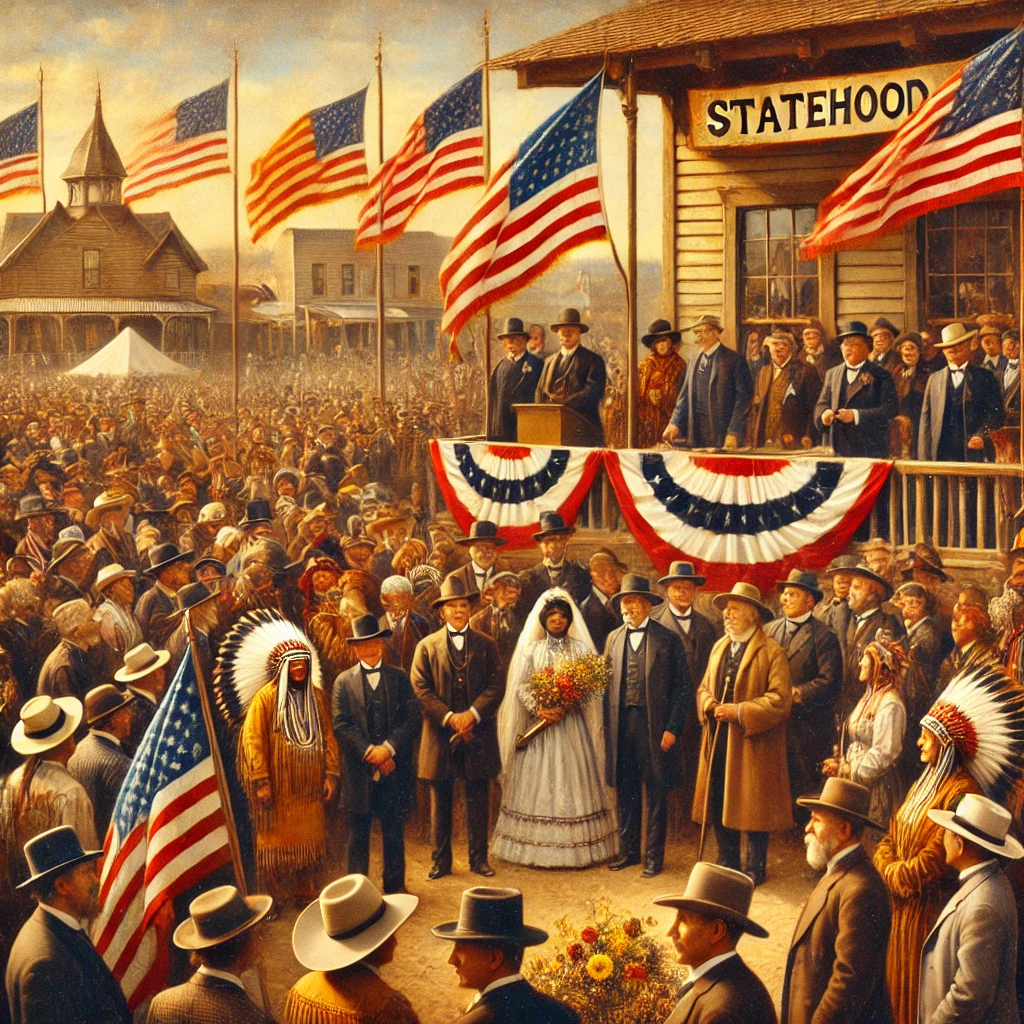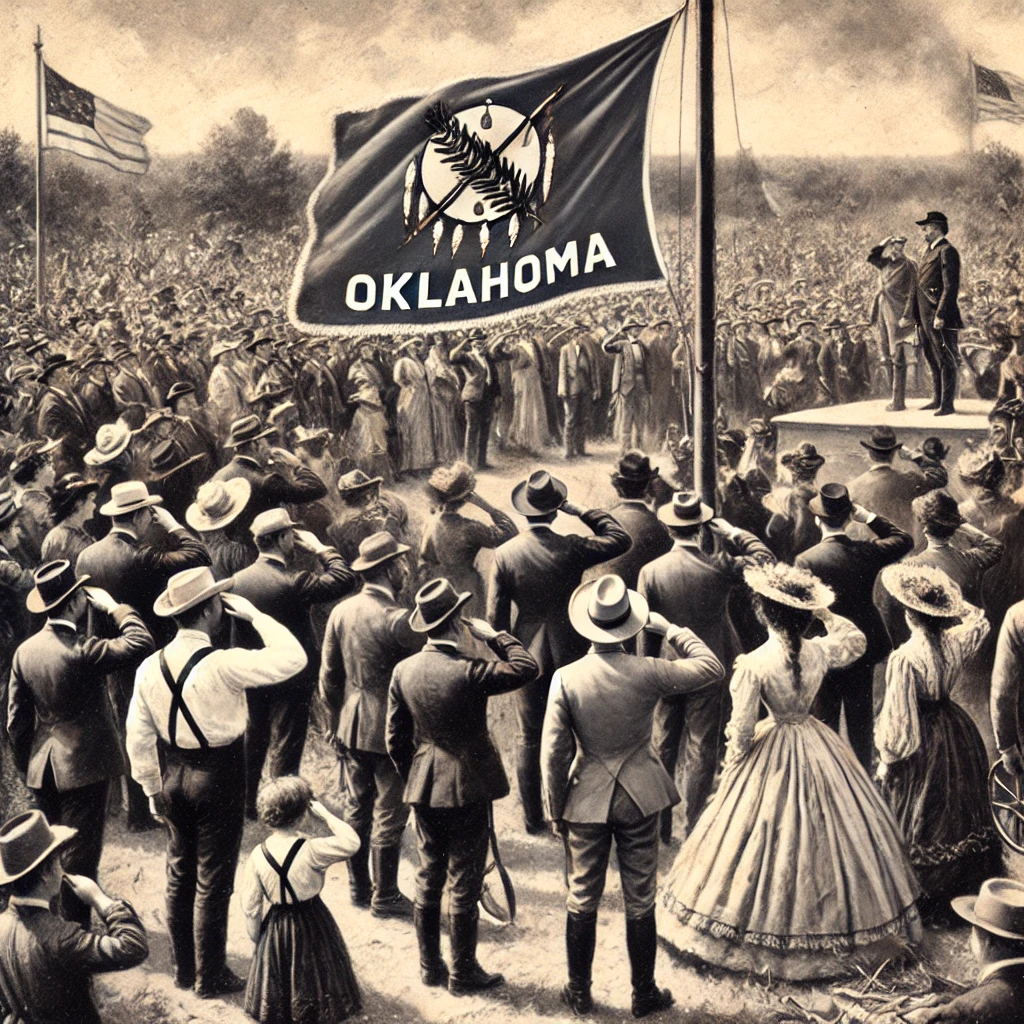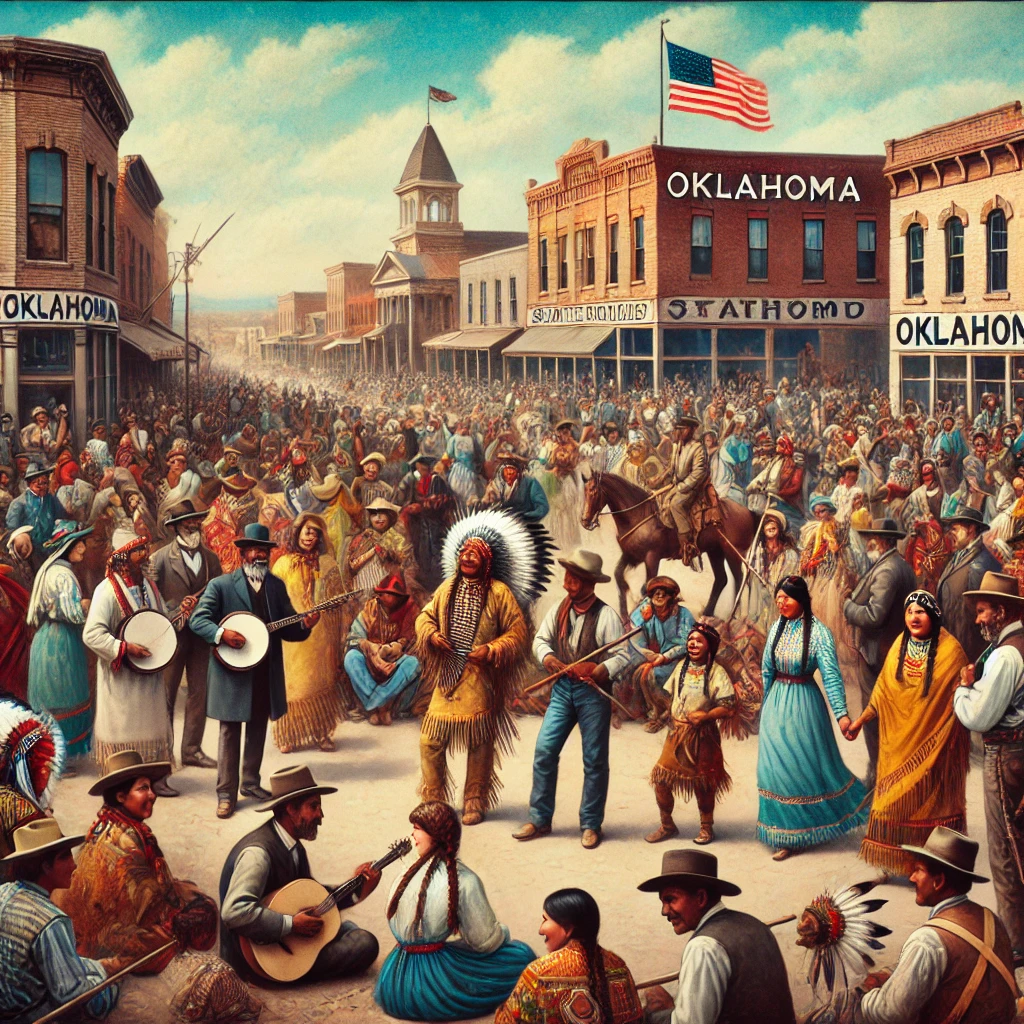On November 16, 1907, Oklahoma was officially admitted as the 46th state in the United States, marking a significant milestone in American history. This event was the culmination of a long and complex journey that involved the interaction of various cultures, indigenous peoples, and waves of settlers. The rich history and diverse cultural landscape of Oklahoma have played a vital role in shaping the broader American identity and its development as a nation.

The Path to Statehood
The area that would become Oklahoma has a storied past, deeply intertwined with the narratives of Native American tribes, European settlers, and the United States government. Initially home to various indigenous peoples, including the Cherokee, Creek, and Osage tribes, the land faced significant upheaval in the 19th century due to westward expansion and government policies such as the Indian Removal Act of 1830. These policies forcibly relocated many Native American tribes to what is now Oklahoma, reshaping the demographic landscape of the region.
As the United States expanded its territories, Oklahoma became a site for land runs, where settlers raced to claim land that was previously designated for Native American tribes. The Land Run of 1889 was one of the most significant events, leading to the establishment of towns and settlements across the territory. By the early 20th century, the growing population and demand for governance prompted the push for statehood, culminating in Oklahoma’s official admission to the Union in 1907.

Cultural Diversity and Historical Significance
Oklahoma’s admission as a state brought together a tapestry of cultures and traditions. The blending of Native American heritage with the influences of European settlers created a unique cultural landscape that is evident in the state’s arts, cuisine, and community practices. This diversity is reflected in Oklahoma’s music scene, which has produced notable figures in country, rock, and Native American music, showcasing the state’s rich cultural heritage.
Furthermore, Oklahoma played a significant role in various historical movements, including the Civil Rights Movement. The state has been home to significant events and figures that contributed to the fight for equality and justice. The impact of these movements continues to be felt today, as Oklahoma remains committed to honoring its diverse history and addressing the ongoing challenges faced by its communities.
Oklahoma Today
Today, Oklahoma is known for its vibrant communities, diverse populations, and rich cultural institutions. The state is home to numerous Native American tribes, each with their own traditions, languages, and histories, contributing to the cultural fabric of the region. Oklahoma City and Tulsa are hubs of cultural activity, featuring museums, art galleries, and festivals that celebrate the state’s unique heritage.

The legacy of Oklahoma’s admission as a state is evident in its ongoing commitment to celebrating and preserving its diverse cultural history. From the annual Oklahoma State Fair to various cultural festivals, the state continues to embrace its roots while looking toward the future. The recognition of its indigenous populations and their contributions to the state’s identity underscores the importance of inclusivity and representation in shaping Oklahoma’s narrative.
The addition of Oklahoma as the 46th state on November 16, 1907, marks a significant chapter in American history, representing the complex interplay of cultures, histories, and aspirations. The state’s rich heritage and diverse population have played a vital role in shaping the American landscape, fostering a sense of community and identity that continues to thrive today. As we reflect on Oklahoma’s journey, we celebrate its vibrant past and its ongoing contributions to the cultural mosaic of the United States. The story of Oklahoma serves as a reminder of the strength found in diversity and the importance of honoring the histories that shape our communities.
